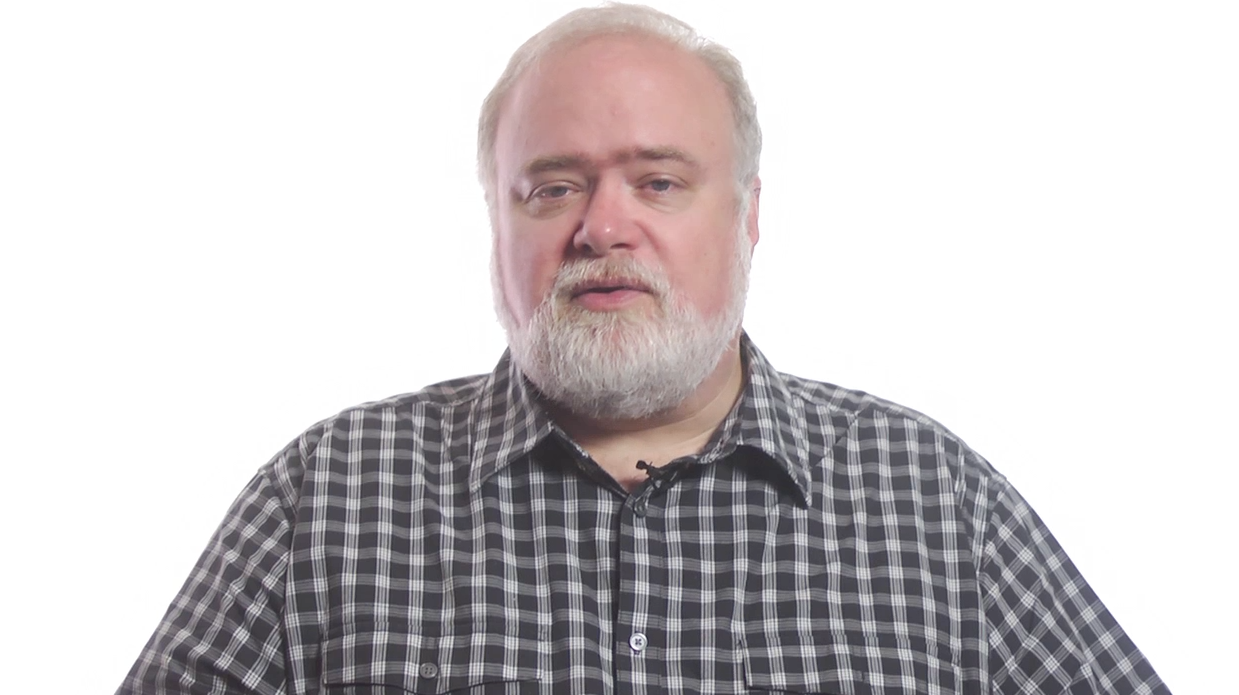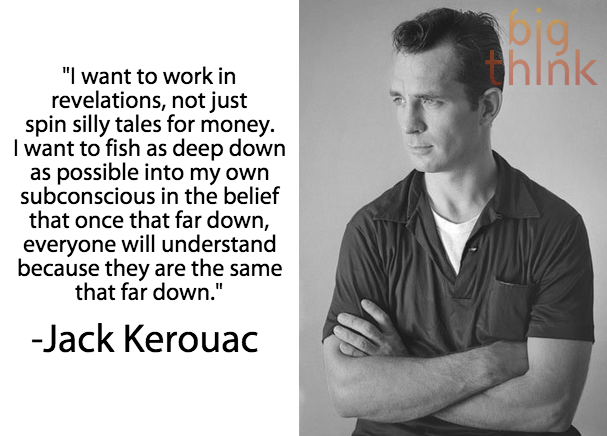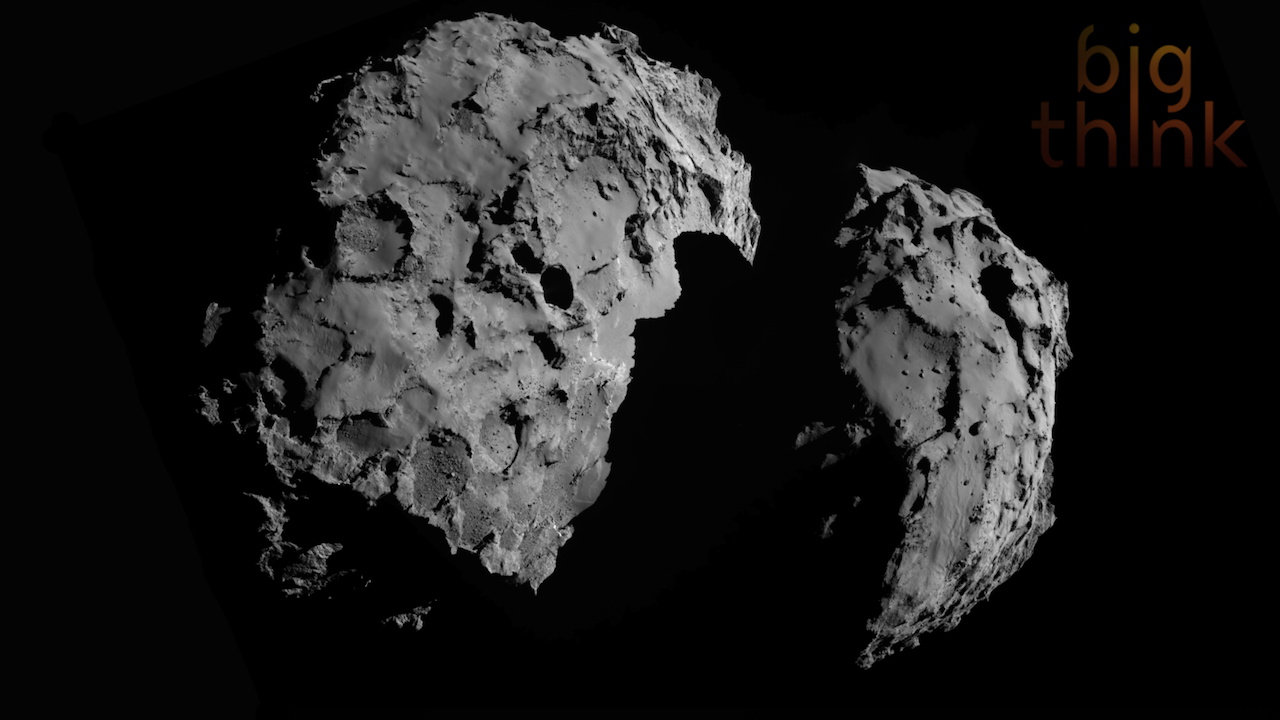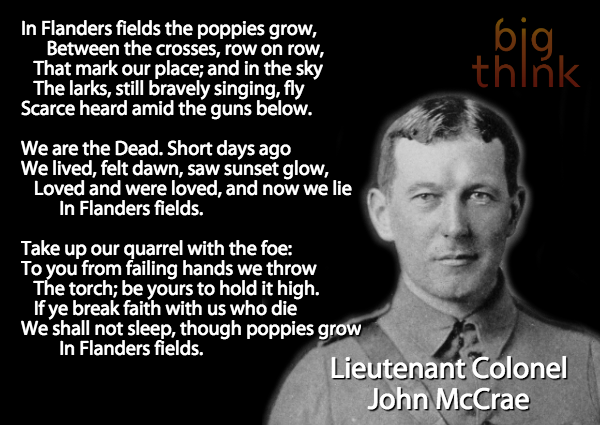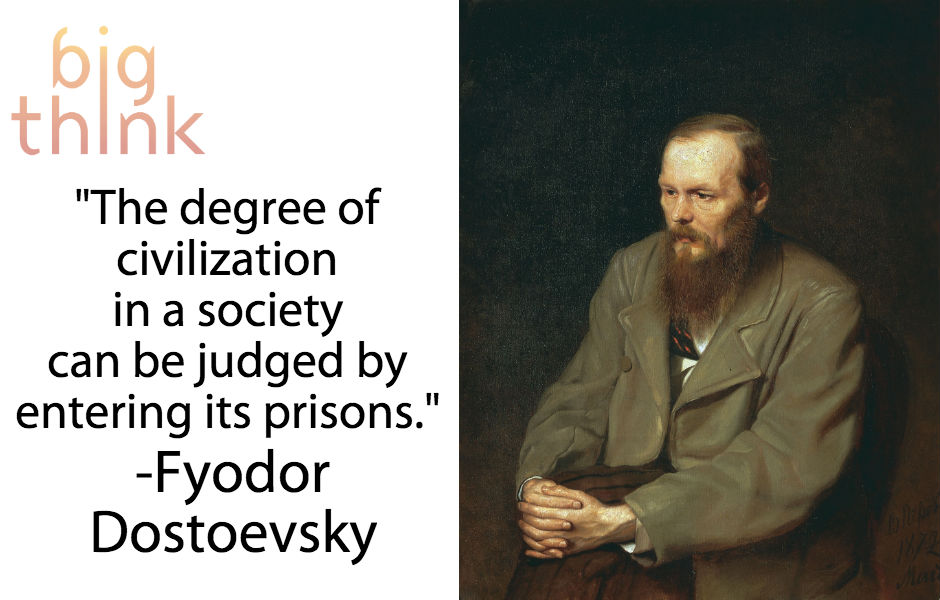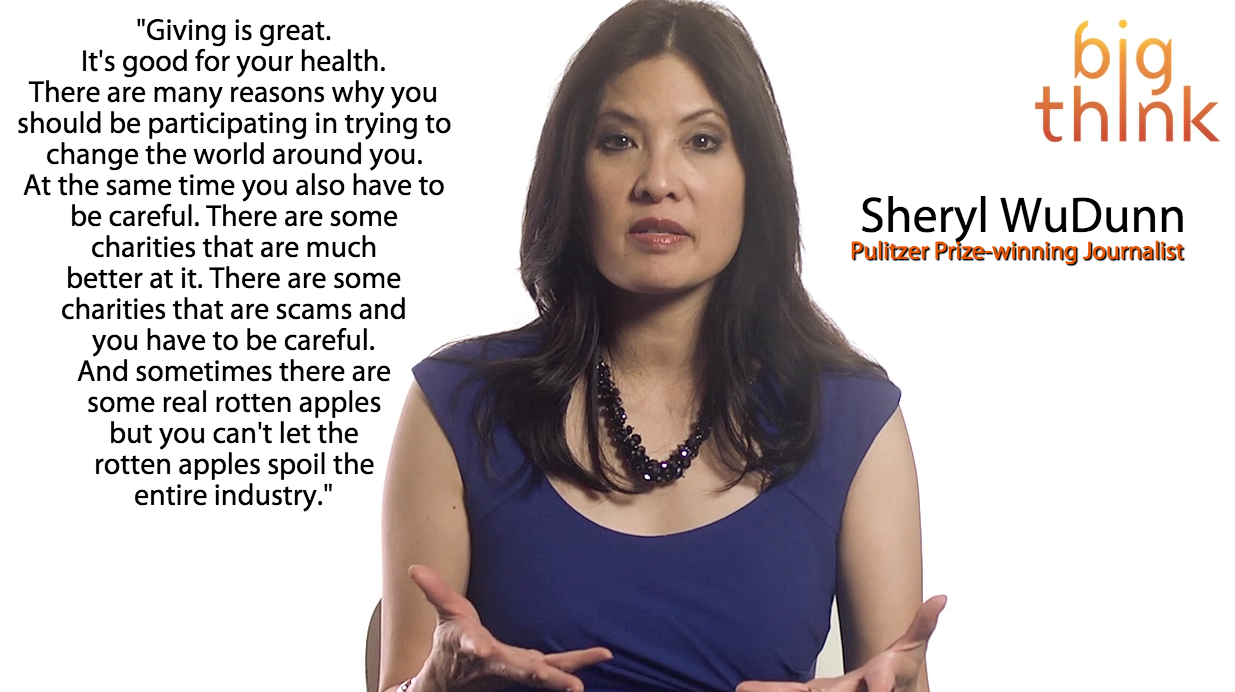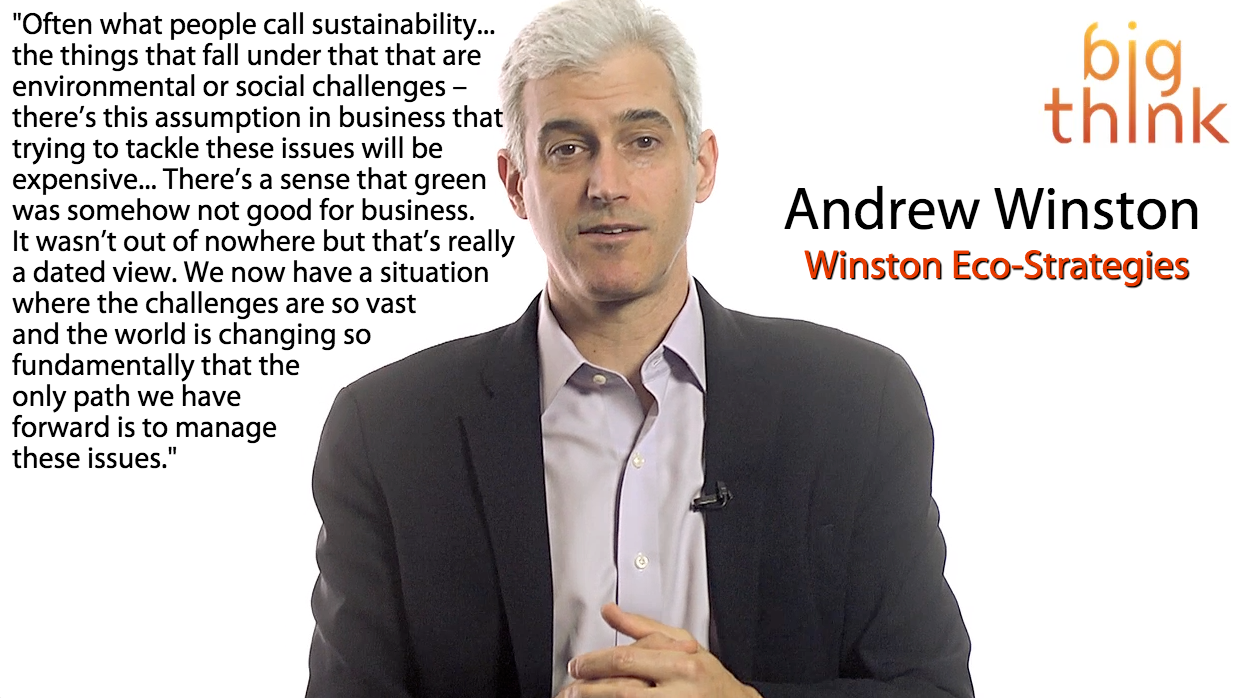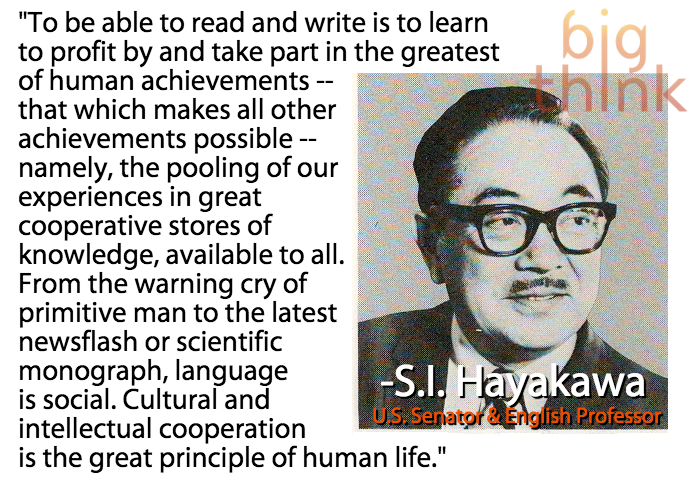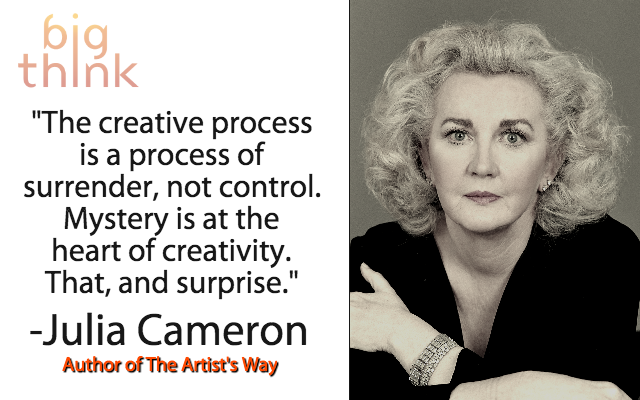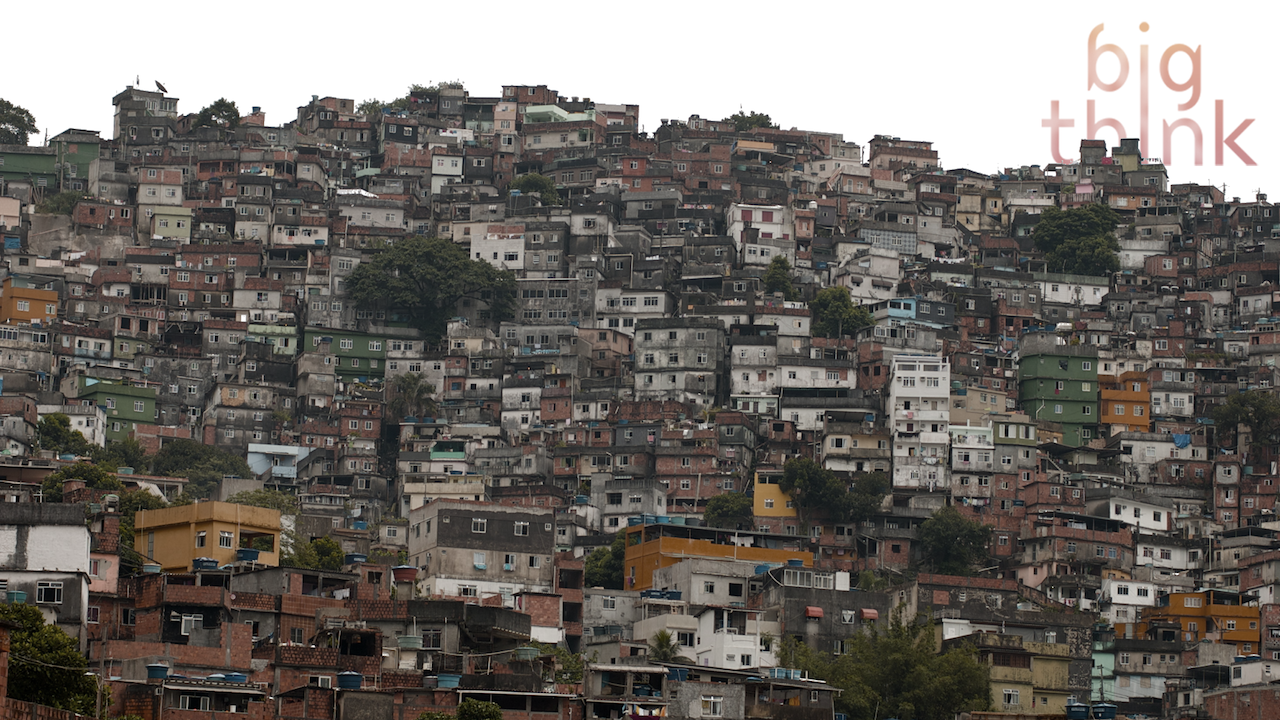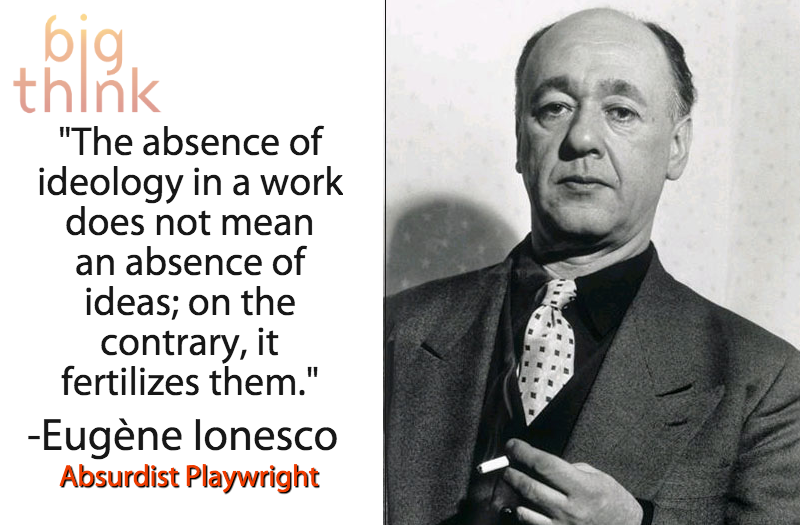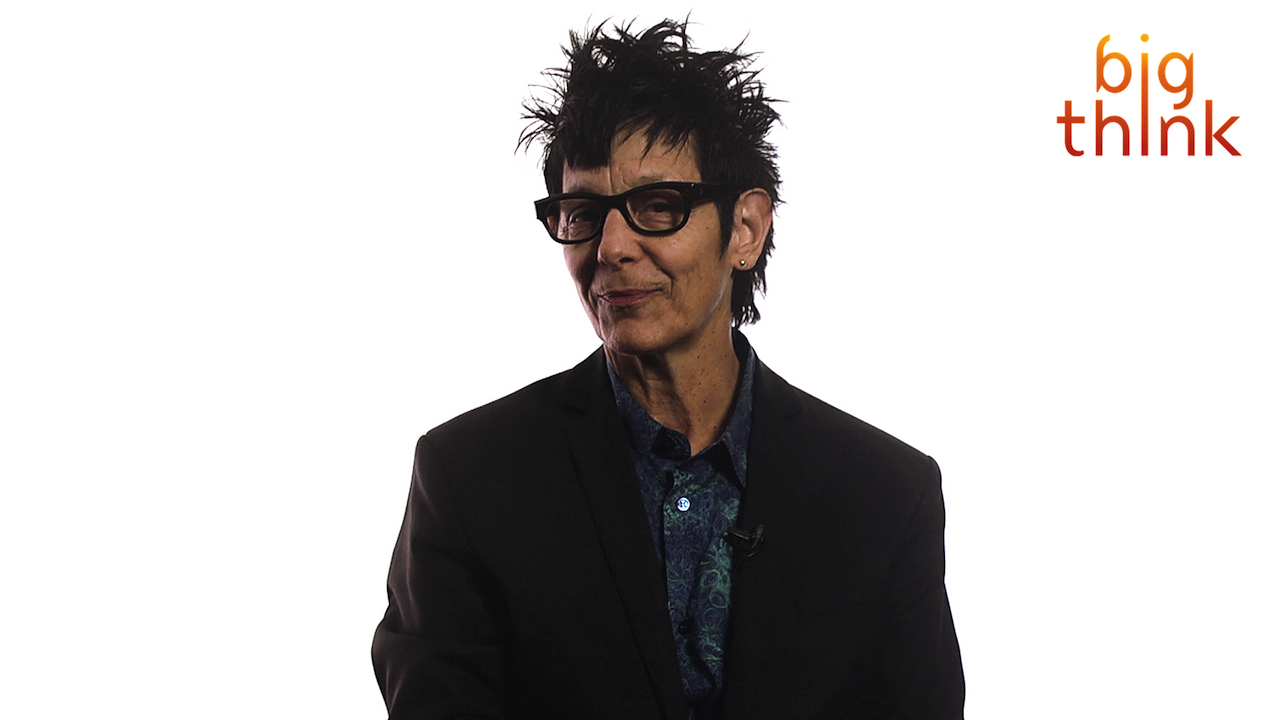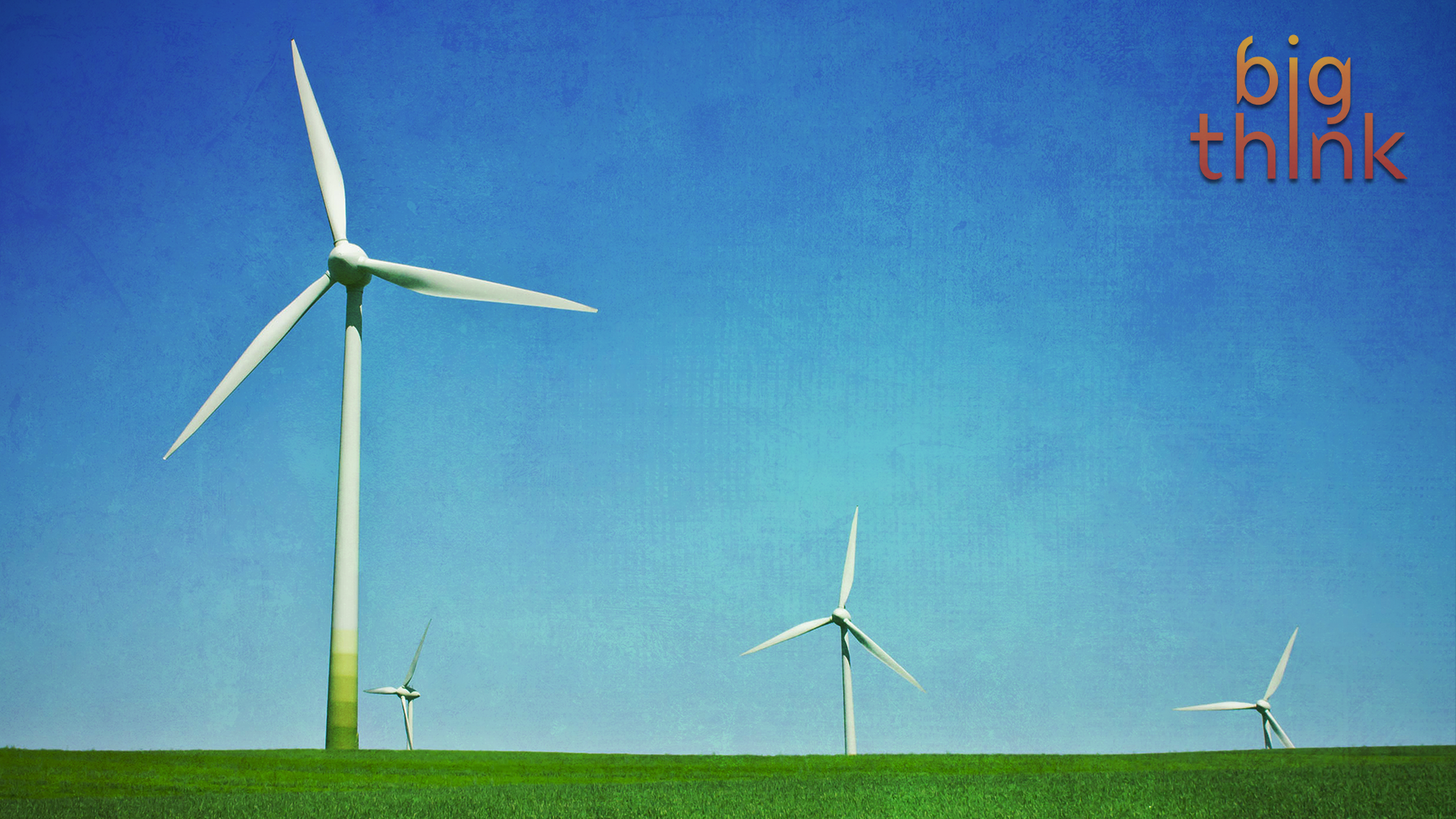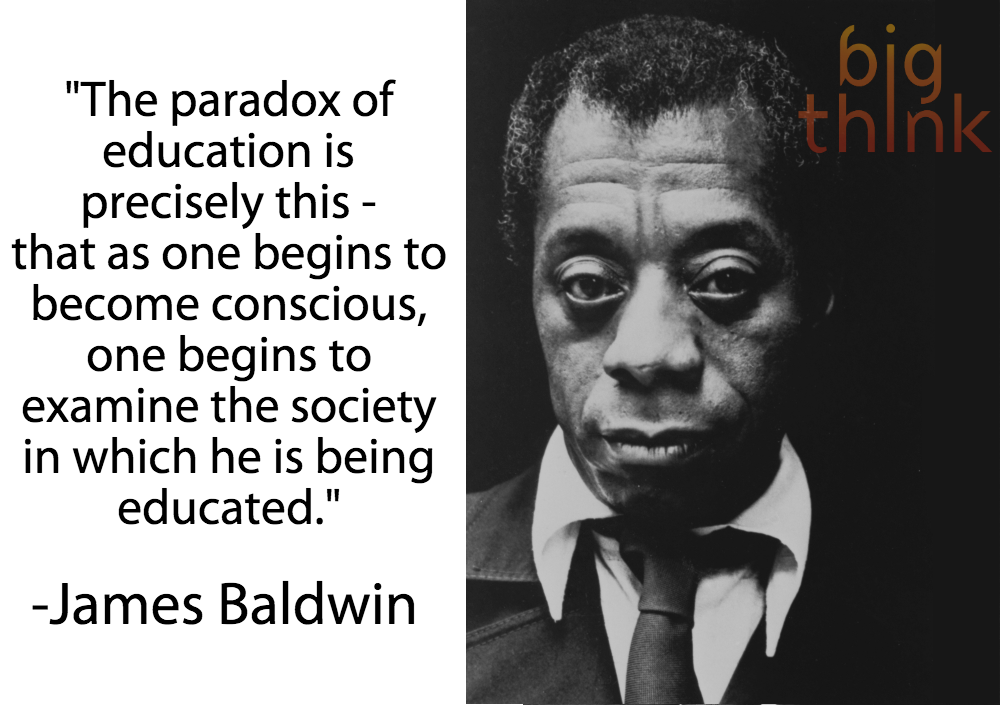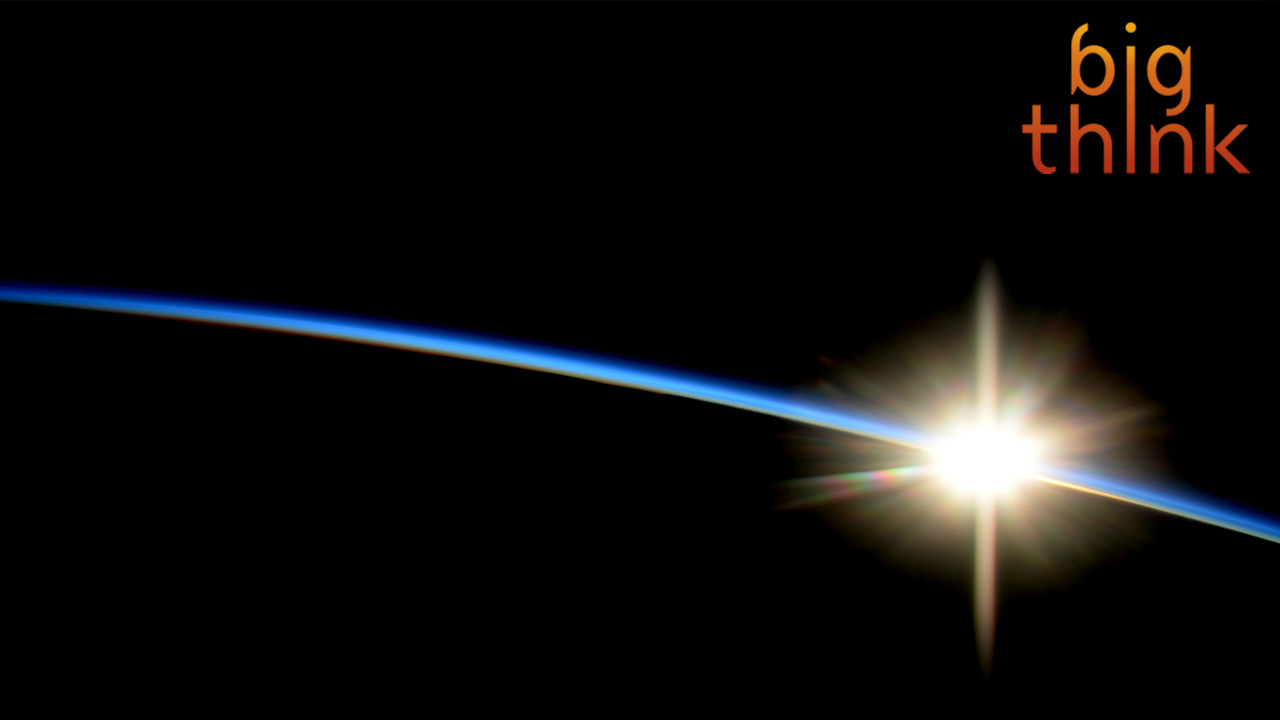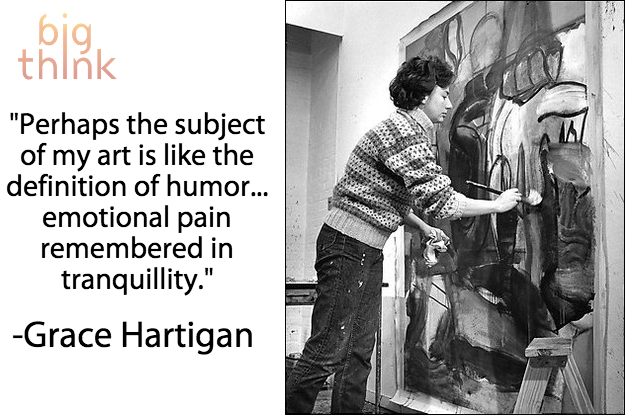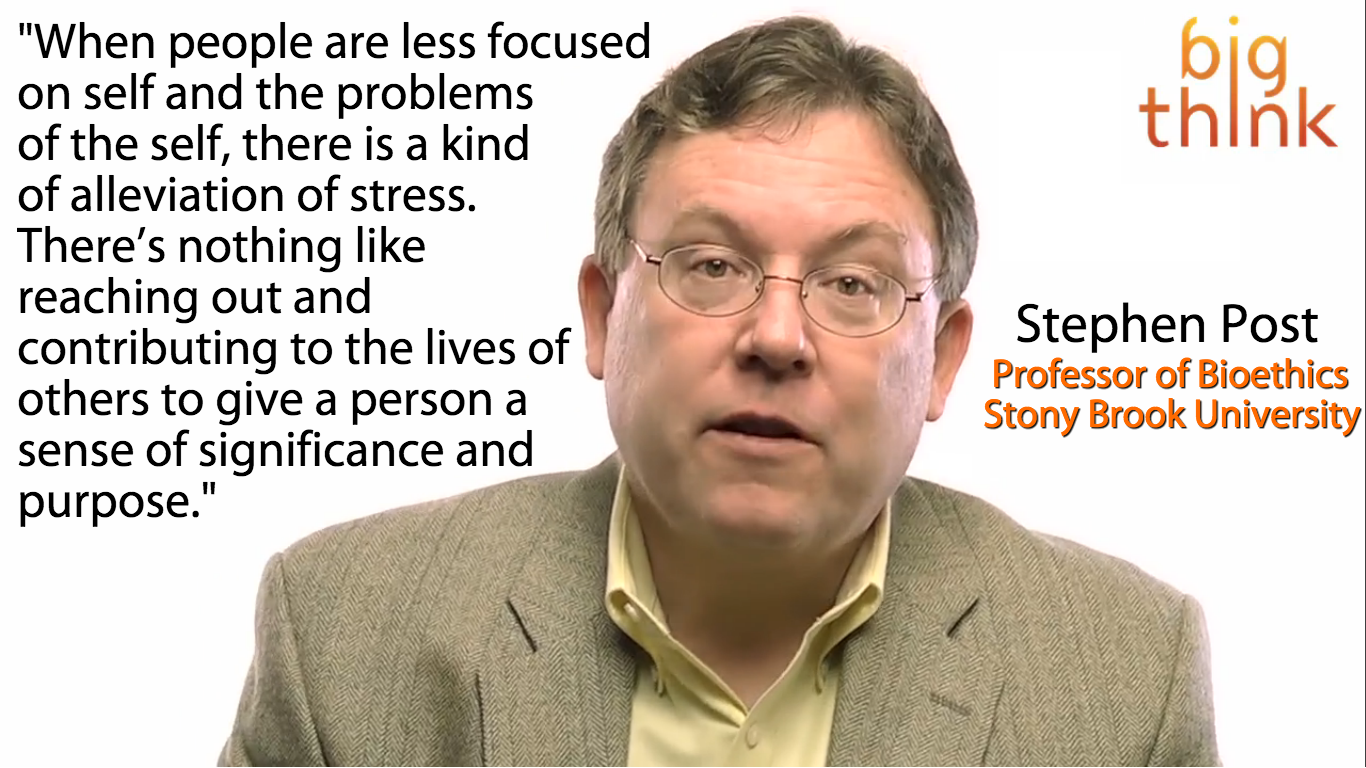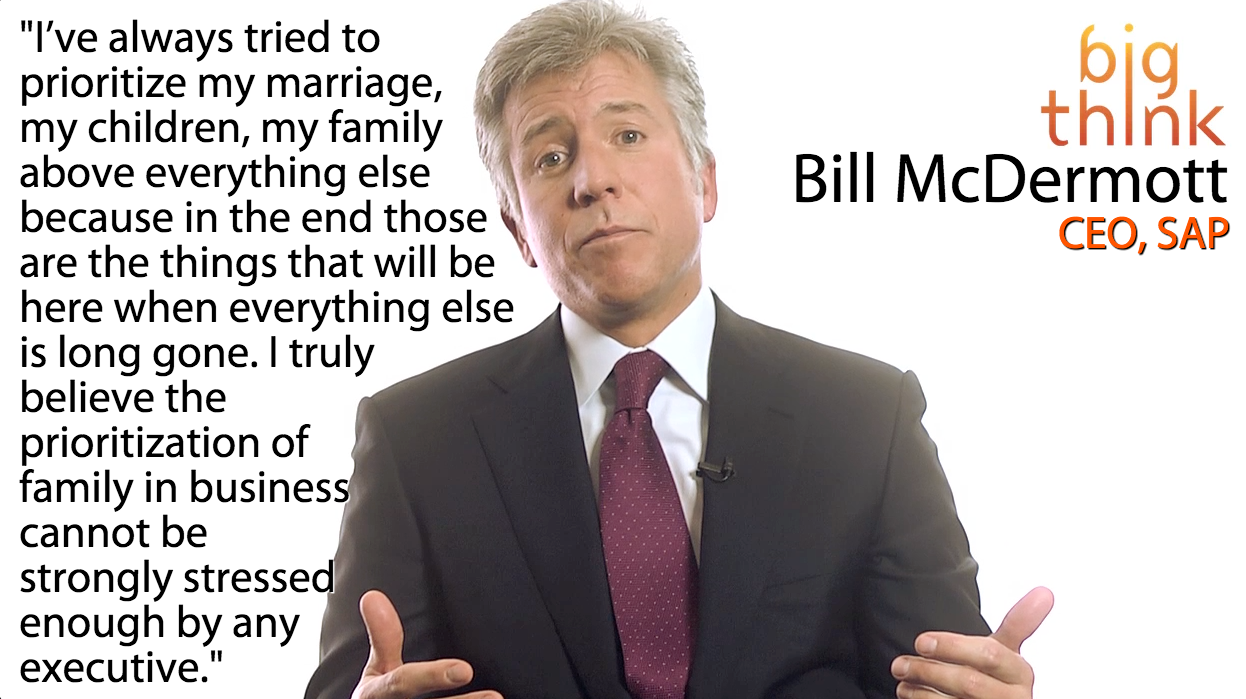bigthinkeditor

“Companies really want inclusion but they often predicate that inclusion on the surrender of various forms of diversity that people bring to the table. So the idea is that if you modulate your outsider identity to adopt mainstream behaviors then you’ll be included. And so it puts people to this tragic choice between their identity and inclusion.”
“Limitations force you to find the essence of what you want to say, which is one of the most important things to know for an artist.”
“Cautious, careful people, always casting about to preserve their reputation and social standing, never can bring about a reform. Those who are really in earnest must be willing to be anything or nothing in the world’s estimation.”
The president of Iceland explains the secret to the Nordic countries’ recent economic and social success. Social welfare programs such as free access to education and healthcare have proved to be a boon to the free market economy.
Tech entrepreneur Brad Templeton returns to Big Think to discuss how Bitcoin disrupts the finance industry.
“I want to work in revelations, not just spin silly tales for money. I want to fish as deep down as possible into my own subconscious in the belief that once that far down, everyone will understand because they are the same that far down.” -Jack Kerouac
Bill Nye discusses the Rosetta comet landing, ruminates on the expanse of potential discoveries it could open up, and explains why this current space adventure may one day prevent a major global tragedy.
Canadian physician Lt. Col. John McCrae composed this poem after presiding over the funeral of a friend killed at the 2nd Battle of Ypres in 1915.
“The degree of civilization in a society can be judged by entering its prisons.”
Pulitzer Prize-winning journalist Sheryl WuDunn recently visited Big Think to discuss her new book, A Path Appears.
Environmental Strategist Andrew Winston visited Big Think this week to discuss how the business world can play a major role in dealing with climate change.
“Often what people call sustainability… the things that fall under that that are environmental or social challenges – there’s this assumption in business that trying to tackle these issues will be expensive… There’s a sense that green was somehow not good for business. It wasn’t out of nowhere but that’s really a dated view. We now have a situation where the challenges are so vast and the world is changing so fundamentally that the only path we have forward is to manage these issues.”
“To be able to read and write is to learn to profit by and take part in the greatest of human achievements — that which makes all other achievements possible — namely, the pooling of our experiences in great cooperative stores of knowledge, available to all. From the warning cry of primitive man to the latest newsflash or scientific monograph, language is social. Cultural and intellectual cooperation is the great principle of human life.”
-S.I. Hayakawa, from Language in Thought & Action
Author and academic Kenji Yoshino describes the difference between passing and covering, and how companies will sometimes employ a myopic form of diversity inclusion that necessitates the abandonment of one’s identity.
“The creative process is a process of surrender, not control… Mystery is at the heart of creativity. That, and surprise.”
-Julia Cameron, American artist, from The Artist’s Way, 1992
Julie Sunderland, the Director of Program Related Investments for the Bill & Melinda Gates Foundation, explains how the Foundation works to include and incentivize the private sector in order to accomplish its ambitious goals.
“The absence of ideology in a work does not mean an absence of ideas; on the contrary it fertilizes them.”
-French-Romanian Absurdist playwright Eugène Ionesco, 1958
Best-selling author Steven Kotler discusses hypofrontality — literally the slowing of the brain’s prefrontal cortex — and how it allows one to enter an optimal state of consciousness, known as flow. As Kotler explains, flow refers to those moments of total absorption when we get so focused on the task at hand that everything else disappears
The extreme action dance pioneer takes us through the theory behind PopAction and how flying, falling dancers teach audiences about resilience and hope.
Author and environmental strategist Andrew Winston explains the unique ideas espoused in his book The Big Pivot, in which he promotes a green shift in business priorities away from short-term profits and toward long-term sustainability.
“The paradox of education is precisely this – that as one begins to become conscious, one begins to examine the society in which he is being educated.”
-James Baldwin, 1963
Biologist Edward O. Wilson tackles the meaning of life and existence. He argues that explaining why we’re here, what we are, and where we’re going is a task best suited to science, not philosophy. He identifies five major scientific branches that are currently making the most progress.
“Perhaps the subject of my art is like the definition of humor — emotional pain remembered in tranquillity.”
-Abstract expressionist Grace Hartigan (1922-2008)
With everyone always trying to identify “the next Silicon Valley,” Eric Hippeau explains that New York City needs not try to be the next anything. It’s already a force in and of itself.
“When people are less focused on self and the problems of the self, there is a kind of alleviation of stress. There’s nothing like reaching out and contributing to the lives of others to give a person a sense of significance and purpose.”
-Professor Stephen Post, from his Big Think interview.
SAP CEO Bill McDermott recently visited Big Think to discuss his new book Winners Dream and talk about the importance of prioritizing family over business.
Cesar Chavez described his life’s work in his “What the Future Holds” speech from 1984:
“All my life, I have been driven by one dream, one goal, one vision: to overthrow a farm labor system in this nation that treats farm workers as if they were not important human beings. Farm workers are not agricultural implements; they are not beasts of burden to be used and discarded.”
While Sam Harris doesn’t necessarily condone their use, his experimentations with psychedelic drugs were indelible in the formation of his worldview and understanding of consciousness.
With Oscar Taveras on our minds, we remember another ballplayer who was taken much too young young. More than just a Hall of Fame outfielder, Roberto Clemente was a man committed to giving back. He died tragically at the age of 38 when a plane he chartered to deliver aid to earthquake-stricken Nicaragua crashed in the Caribbean Sea.
“Any time you have an opportunity to make a difference in this world and you don’t, then you are wasting your time on Earth.”
“We should write our own history books to prove that we did have a past, and that it was a past that was just as worth writing and learning about as any other. We must do this for the simple reason that a nation without a past is a lost nation, and a people without a past is a people without a soul.”
-Seretse Khama, 1st President of Botswana
Venture for America is a non-profit fellowship program that grooms the next generation of American entrepreneurs by placing them in startup apprenticeships.




